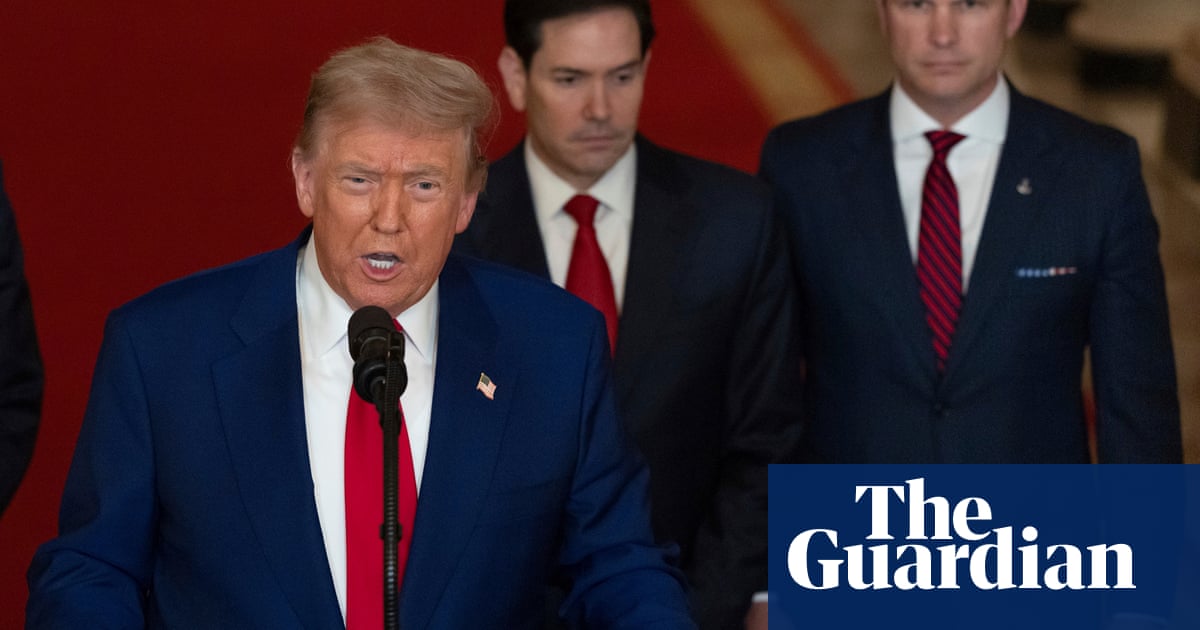The Complex Web of Iran’s Nuclear Program
When Donald Trump ordered the U.S. military to target Iran’s nuclear facilities, it reignited nearly two decades of debate among intelligence officials, experts, and policymakers regarding the status of Tehran’s nuclear ambitions. This ongoing debate reflects a long-standing conflict between a relatively dovish U.S. intelligence community and more hawkish viewpoints, particularly those from Israel and neoconservative factions.
Diverging Perspectives on Iran’s Nuclear Intentions
Since at least 2007, U.S. intelligence agencies have consistently concluded that while Iran has developed a uranium enrichment program, it has not pursued the construction of atomic bombs. This distinction between enrichment and outright weaponization has been central to the intelligence narrative surrounding Iran and has led to recurring discussions about the implications of its nuclear activities.
Israel and proponents of a militaristic approach towards Iran often assert that the distinction is irrelevant. They argue that the nation could construct a nuclear weapon with startling speed if it chose to do so. However, a crucial point of contrast emerges: Iran has not actively sought to build a bomb since it suspended its weaponization program in 2003. This strategic choice suggests that Iran aims to leverage the threat of nuclear capability to serve its broader regional interests rather than to pursue an actual nuclear arsenal.
Historical Parallels: Iran and Iraq
The situation surrounding Iran’s nuclear program draws interesting parallels with Iraq under Saddam Hussein. Hussein dismantled his weapons of mass destruction programs after the first Gulf War but opted not to disclose this to the international community. By maintaining an aura of potential threat, Hussein hoped to deter regional adversaries, including Iran. U.S. officials ultimately misinterpreted his actions, leading to significant miscalculations that justified the 2003 invasion of Iraq based on flawed intelligence.
The Intelligence Community’s Role
The U.S. intelligence community’s assessments have historically acted as a restraint on presidential actions across various administrations. From George W. Bush through Barack Obama and Joe Biden, each faced pressure from Israel and hawkish policymakers to take decisive action against Iran. Yet the consistent intelligence finding—that Iran was not actively pursuing nuclear weapons—played a critical role in tempering these calls for military intervention.
Shifting Dynamics Under Trump
However, the landscape changed with Trump’s administration. Unlike his predecessors, Trump demonstrated a willingness to align more closely with Israeli interests while displaying skepticism towards U.S. intelligence experts. His administration conducted significant personnel changes within the National Security Council, suggesting a departure from expert opinion in favor of a more ideologically driven approach.
For Trump, intelligence assessments stating that Iran was not building a nuclear bomb seemed increasingly irrelevant. His administration’s stance echoed a broader narrative that prioritized aggressive action over diplomatic nuance.
The Nature of U.S. Intelligence Assessments
Despite the fierce debates surrounding Iran’s nuclear program, the intelligence community has maintained its fundamental position: while Iran has an enrichment program, it has not progressed towards bomb-making. Recent testimonies from Tulsi Gabbard, the director of national intelligence, reinforce this assessment, confirming that despite rising enriched uranium stockpiles, Iran has not restarted its weapons program, which it suspended in 2003.
The Aftermath of Military Action
In the wake of Trump’s military actions against Iran, congressional Democrats raised critical concerns regarding the lack of new intelligence justifying these strikes. Senator Mark Warner, a leading Democratic voice on the Senate intelligence committee, criticized the president for disregarding the intelligence community’s consistent conclusions. The underlying message was clear: without credible evidence of an imminent threat, taking military action appeared unwarranted.
Ongoing Tensions and Future Implications
The tension remains palpable between those advocating for immediate military action against Iran and those who argue for a more cautious approach, rooted in historical intelligence assessments. While Israel and hawkish factions persist in their view that Iran could rapidly build a bomb, the intelligence community continues to assert an ability to detect such efforts early on, long before any successful weaponization occurs.
The discussions surrounding Iran’s nuclear program encapsulate a complex mix of historical context, geopolitical strategy, and differing interpretations of intelligence—a debate that shows no signs of resolution in the near future.


